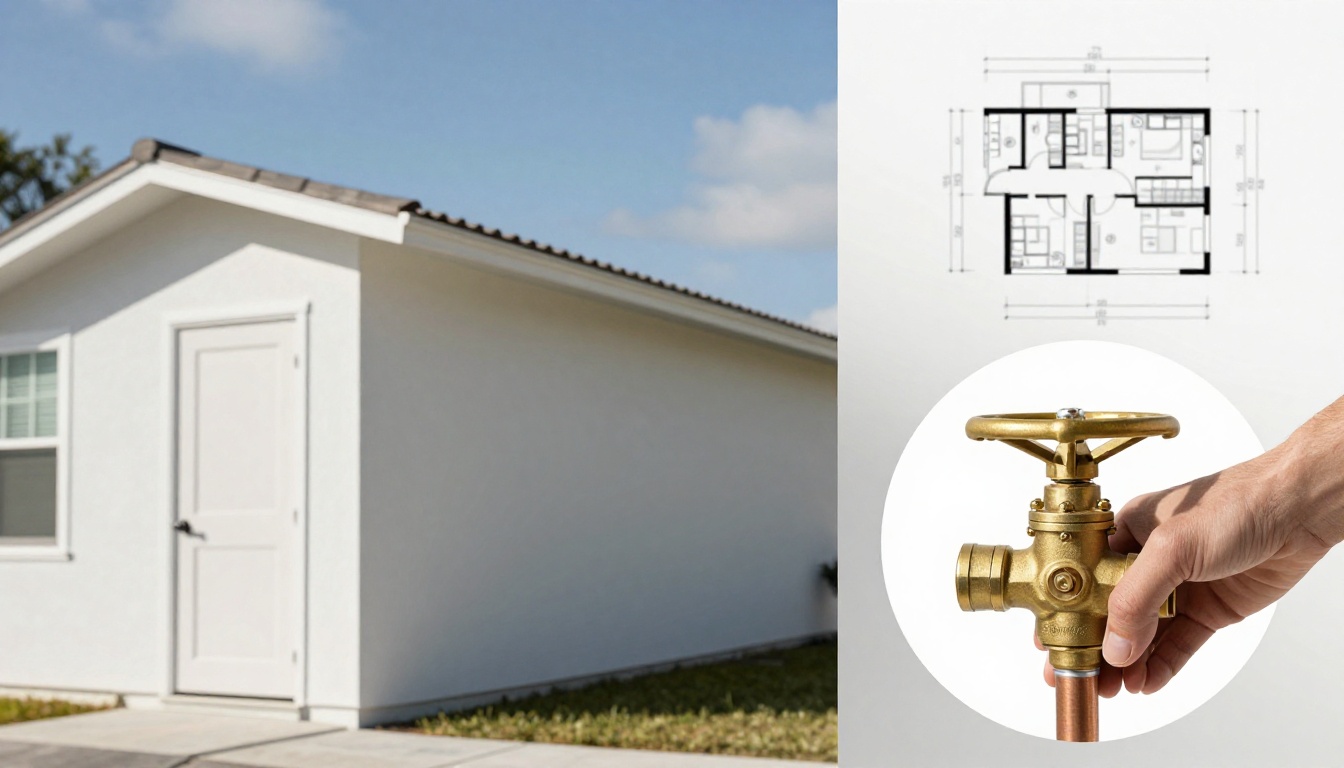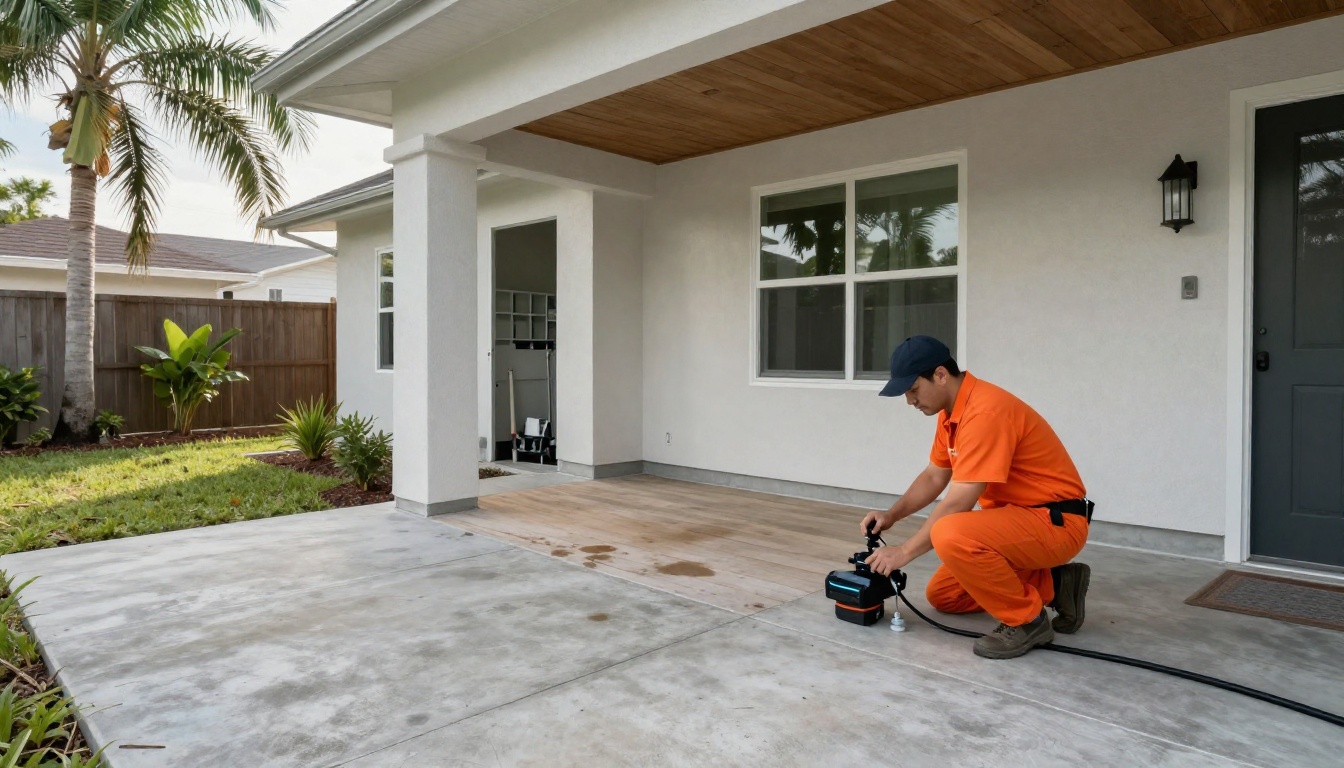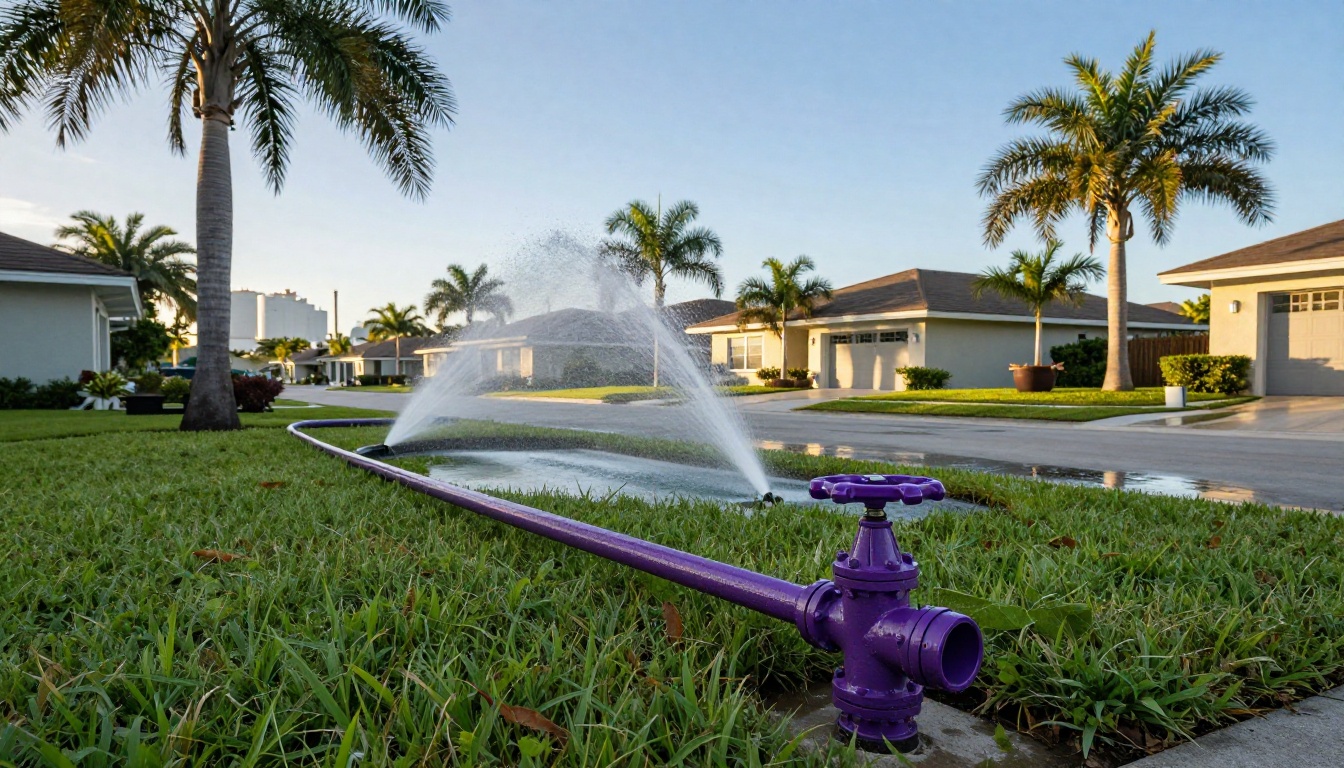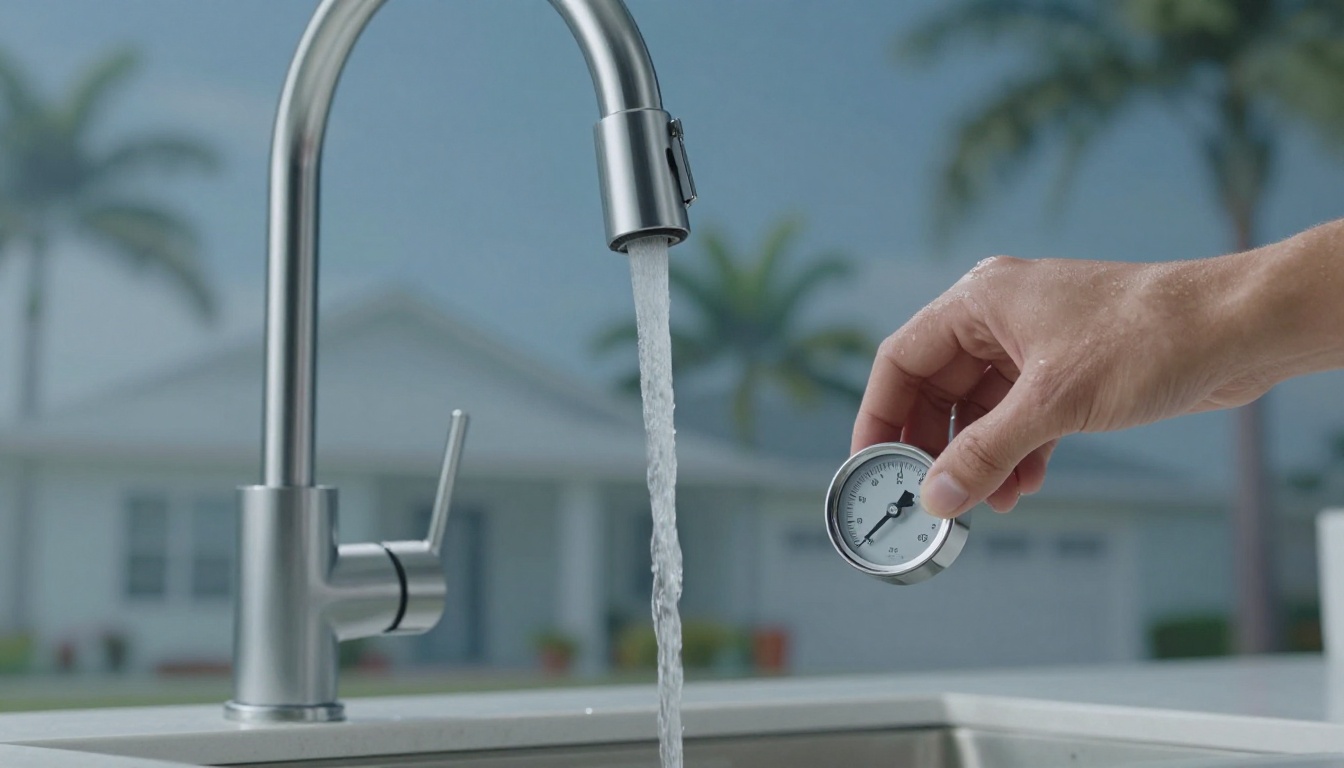Essential Water Heater Maintenance Tips for Cape Coral Residents
Essential Water Heater Maintenance Tips for Cape Coral Residents
Why Water Heater Maintenance Matters in Cape Coral
Cape Coral's tropical climate, high humidity, and proximity to the coast create unique challenges for homeowners, especially when it comes to water heater maintenance. The combination of hard water and salty coastal air can accelerate wear and tear on water heaters, leading to reduced efficiency and a shorter lifespan. Regular maintenance is essential to combat these environmental factors and ensure your water heater operates at peak performance. Without proper care, mineral buildup and corrosion can cause unexpected breakdowns, leaving you without hot water when you need it most.
Beyond avoiding inconvenience, maintaining your water heater can save you money in the long run. By addressing minor issues early, you can prevent costly repairs or even premature replacement. For Cape Coral residents, investing in routine water heater checks not only extends the life of the appliance but also ensures energy efficiency, which is crucial in a region where utility bills can climb quickly. Now that we understand why maintenance matters, let’s explore the types of water heaters commonly found in Cape Coral homes.
Types of Water Heaters Commonly Found in Cape Coral Homes
In Cape Coral, homeowners typically rely on one of four types of water heaters: traditional tank models, tankless systems, gas-powered units, or electric heaters. Tank water heaters are the most common due to their affordability and reliability, but they require regular flushing to remove sediment buildup. Tankless water heaters, while more energy-efficient, demand specialized maintenance to ensure consistent performance. Gas water heaters are popular for their quick heating capabilities, but they require careful attention to venting and gas line safety.
Each type has its own maintenance needs and lifespan. For instance, tank water heaters generally last 8–12 years with proper care, while tankless models can last up to 20 years if maintained regularly. Electric water heaters are less prone to corrosion than gas models but still need annual inspections. Understanding the specific requirements of your unit is the first step toward effective maintenance. With this knowledge, let’s move on to recognizing warning signs that your water heater may need attention.
Warning Signs Your Water Heater Needs Maintenance
There are several red flags that indicate your water heater needs maintenance. Leaking water around the base of the unit is a major concern, as it can lead to water damage and higher utility bills. Strange noises like popping or rumbling often signal sediment buildup inside the tank, which reduces efficiency. Discolored water, temperature fluctuations, and unpleasant odors are other signs that something may be wrong. Ignoring these indicators can result in more severe problems down the line.
If you notice any of these warning signs, it’s important to act quickly. Addressing issues early can prevent further damage and extend the life of your water heater. For example, a professional inspection can identify whether the problem stems from sediment, a faulty component, or something more serious. Next, we’ll dive into a critical safety feature of water heaters: the Temperature & Pressure (T&P) relief valve.
Checking and Testing the T&P Valve
The Temperature & Pressure (T&P) relief valve is a vital safety feature designed to release excess pressure and heat from your water heater. In Cape Coral’s humid environment, this valve can become clogged with mineral deposits or corroded over time, making it ineffective. A malfunctioning T&P valve poses a serious risk, as it can lead to explosions or leaks if the pressure inside the tank becomes too high.
To ensure your T&P valve is functioning properly, test it at least once a year by lifting the lever and checking for a steady flow of water. If the valve fails to release water or drips continuously, it needs to be replaced immediately. Regular testing not only keeps your family safe but also helps maintain the overall health of your water heater. With this safety measure covered, let’s discuss another crucial maintenance task: flushing the tank to remove sediment.
Flushing the Water Heater Tank to Remove Sediment
Flushing your water heater annually is one of the most effective ways to remove mineral sediment, which is particularly important in Cape Coral due to the region’s hard water. Over time, calcium and magnesium deposits accumulate at the bottom of the tank, reducing efficiency and causing overheating. This buildup forces the heater to work harder, increasing energy consumption and shortening its lifespan.
To flush the tank, start by turning off the power or gas supply and allowing the water to cool. Attach a hose to the drain valve and direct it to a safe drainage area. Open the valve and let the water flow until it runs clear. Always follow safety precautions, such as wearing gloves and consulting the owner’s manual for specific instructions. Once the tank is flushed, you’ll notice improved performance and lower utility bills. Speaking of protecting your tank, let’s examine the role of the sacrificial anode rod.
Inspecting and Replacing the Sacrificial Anode Rod
The sacrificial anode rod plays a key role in preventing tank corrosion by attracting corrosive elements in the water. Over time, however, the rod itself corrodes and needs to be replaced. In Cape Coral’s humid and salty air, this process can happen faster, making regular inspections even more critical. Most manufacturers recommend checking the anode rod every 2–3 years, though some may need replacement sooner depending on water quality.
Signs that the rod needs replacing include heavy corrosion, thinning, or a rotten egg smell in the hot water. Replacing the anode rod is a cost-effective way to prolong the life of your water heater and avoid expensive replacements. Homeowners who stay on top of this task can save thousands of dollars over the appliance’s lifespan. Now that we’ve covered the anode rod, let’s talk about adjusting your water heater’s temperature settings for optimal performance.
Adjusting Water Heater Temperature Settings
Setting your water heater to the optimal temperature—typically 120°F—is a simple yet effective way to enhance energy efficiency and safety. At this temperature, you reduce the risk of scalding while still enjoying comfortable hot water. In Florida’s warm climate, there’s no need to set the thermostat higher, as it wastes energy and increases utility bills. Adjusting the temperature is usually straightforward, requiring only a screwdriver to turn the dial on the thermostat.
Scheduling Professional Maintenance vs. DIY
While some water heater maintenance tasks, like flushing the tank or checking for leaks, can be handled by homeowners, others require professional expertise. Electrical and gas-related issues, for example, should always be addressed by licensed plumbers to ensure safety and compliance with local codes. Cape Coral residents can benefit from professional annual inspections, which catch small problems before they escalate into costly repairs.
Hiring a professional also provides peace of mind, especially for complex systems like tankless or gas water heaters. Companies like Infinity Plumbing SWFL offer comprehensive maintenance services tailored to the unique needs of Cape Coral homes. By combining DIY efforts with professional check-ups, you can maximize the efficiency and longevity of your water heater. Before diving into maintenance, however, it’s important to prioritize safety.
Water Heater Maintenance Safety Tips
When performing water heater maintenance, always shut off the power or gas supply before starting any work. Use appropriate tools and follow the manufacturer’s guidelines to avoid accidents. If you’re unsure about a task, consult the owner’s manual or call a professional plumber in Cape Coral for assistance. Safety should always come first to protect both you and your home.
Energy Efficiency and Cost Savings Through Regular Maintenance
Regular water heater maintenance is a smart investment that pays off in energy savings and extended appliance life. By removing sediment, inspecting components, and optimizing settings, you can significantly reduce your monthly utility bills. A well-maintained water heater operates more efficiently, using less energy to heat water and delivering consistent performance.
Proactive care also prevents expensive repairs and delays the need for replacement, saving homeowners thousands of dollars over time. For Cape Coral residents, where hard water and humidity take a toll on appliances, these savings are particularly valuable. With proper maintenance, your water heater can serve your family reliably for years to come. But what about preparing for extreme weather events? Let’s explore special considerations for hurricanes and flooding.
Preparing for Hurricanes and Flooding: Special Considerations
In Cape Coral, hurricane season requires extra precautions to protect your water heater. Anchor the unit securely to prevent tipping during high winds, and shut off the gas or electricity before the storm hits. After the storm, inspect the heater for damage and ensure it’s functioning properly before resuming use. These steps help safeguard your home and ensure your water heater remains operational during recovery efforts.
When to Repair vs. Replace Your Water Heater
Deciding whether to repair or replace your water heater depends on several factors, including its age, frequency of repairs, and overall condition. If your unit is over a decade old and requires frequent fixes, it may be more cost-effective to invest in a new, energy-efficient model. Modern water heaters offer advanced features and better performance, aligning with evolving efficiency standards.
For Cape Coral residents, local resources like Infinity Plumbing SWFL can provide guidance on selecting and installing the right replacement. Their expertise ensures a smooth transition and helps you choose a system suited to your home’s needs. Now that we’ve covered repair versus replacement, let’s address some frequently asked questions about water heater maintenance.
Frequently Asked Questions
How often should I flush my water heater in Cape Coral?
Due to Cape Coral’s hard water conditions, it’s recommended to flush your water heater annually. This prevents sediment buildup, maintains efficiency, and extends the life of the appliance. Regular flushing ensures your heater operates smoothly year-round.
Is it safe to do water heater maintenance myself?
Basic tasks like flushing the tank and checking for leaks are safe for DIY enthusiasts, but gas or electrical issues should always be handled by a professional. If you’re unsure, contact a licensed plumber in Cape Coral for assistance.
What temperature setting is recommended for my water heater?
Set your water heater to 120°F for optimal energy savings and scald prevention. This temperature strikes a balance between comfort and safety, making it ideal for Florida’s climate.
How do I know if the anode rod needs to be replaced?
Check the anode rod every 2–5 years for signs of heavy corrosion or thinning. A rotten egg smell in the hot water is another indicator that the rod needs replacement. Refer to your owner’s manual for specific guidance.
Who should I call if I suspect my water heater is leaking?
If you notice a leak, contact a licensed plumber in Cape Coral immediately to prevent water damage and ensure safe repairs. Quick action minimizes risks and restores your hot water supply efficiently.
Conclusion
Maintaining your water heater is crucial for ensuring its longevity, safety, and efficiency, especially in Cape Coral’s challenging climate. Simple tasks like annual flushing, checking the T&P valve, and inspecting the anode rod can prevent major issues and save you money. By staying proactive, you protect your investment and enjoy reliable hot water throughout the year.
We encourage Cape Coral residents to review their current maintenance habits and schedule a professional tune-up if needed. Consulting experts like Infinity Plumbing SWFL can provide tailored guidance for your specific unit. Remember, proactive care not only safeguards your family’s comfort but also offers peace of mind in the long run.




Get a Free Estimate
Got a plumbing issue? We’re here to help! Whether you need emergency repairs, routine maintenance, or have a question about our services, our team is ready to assist you.
